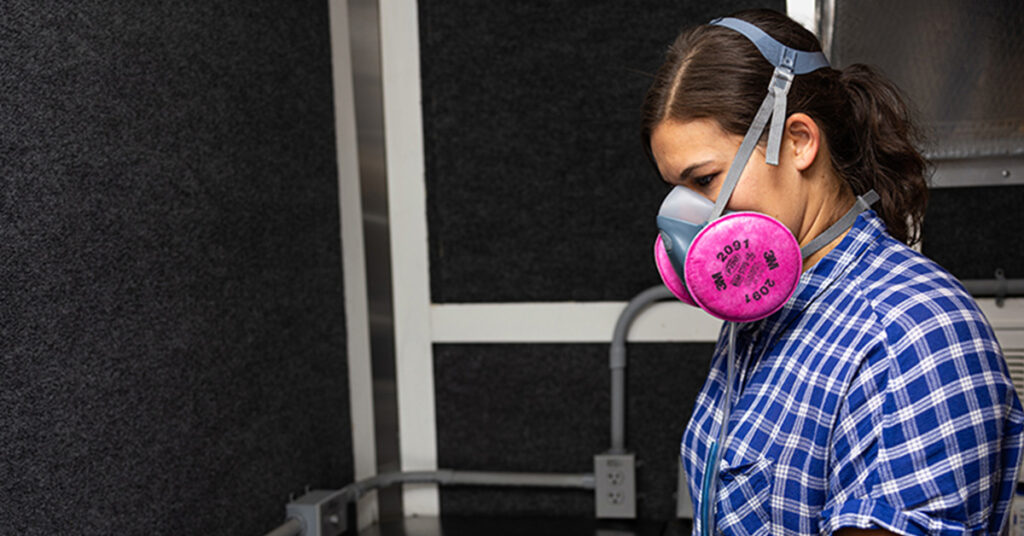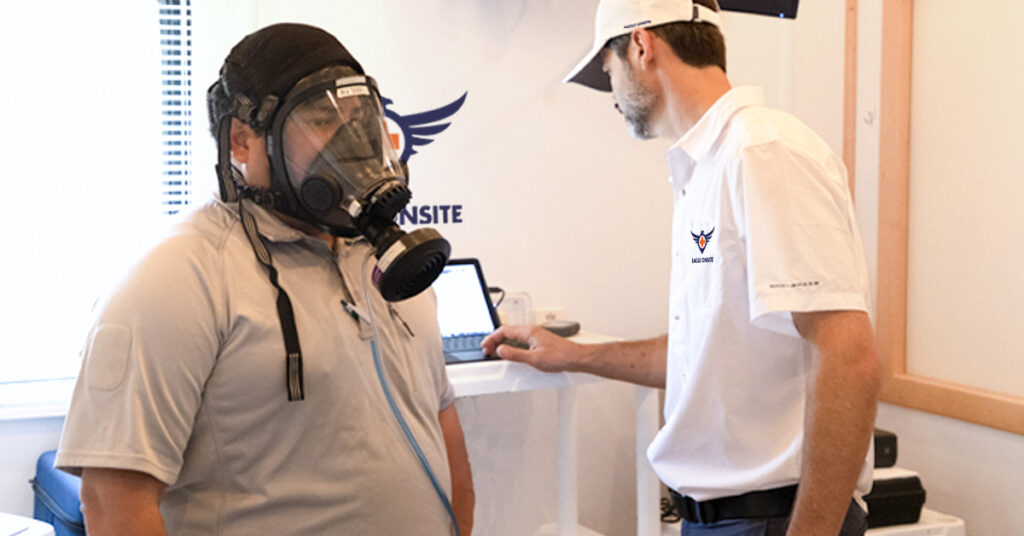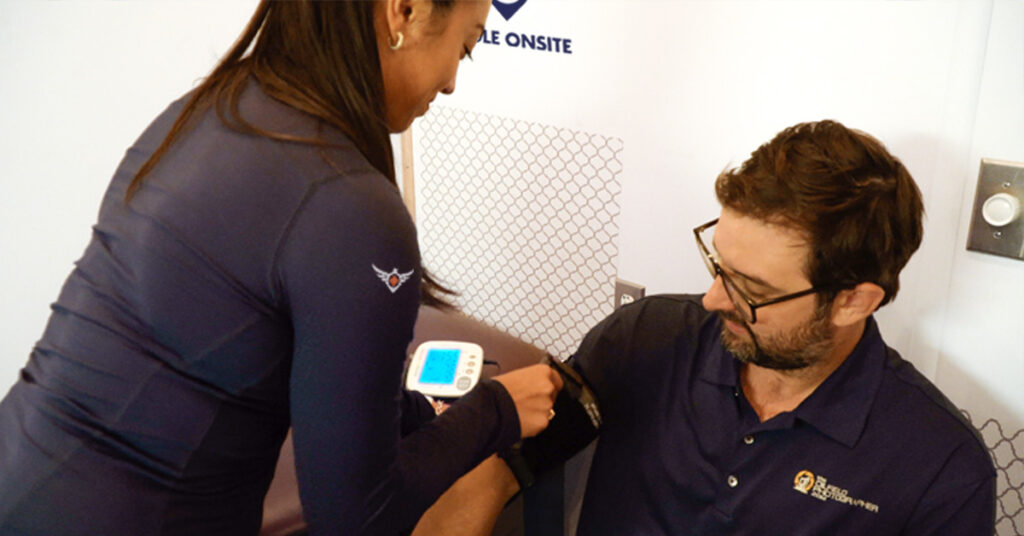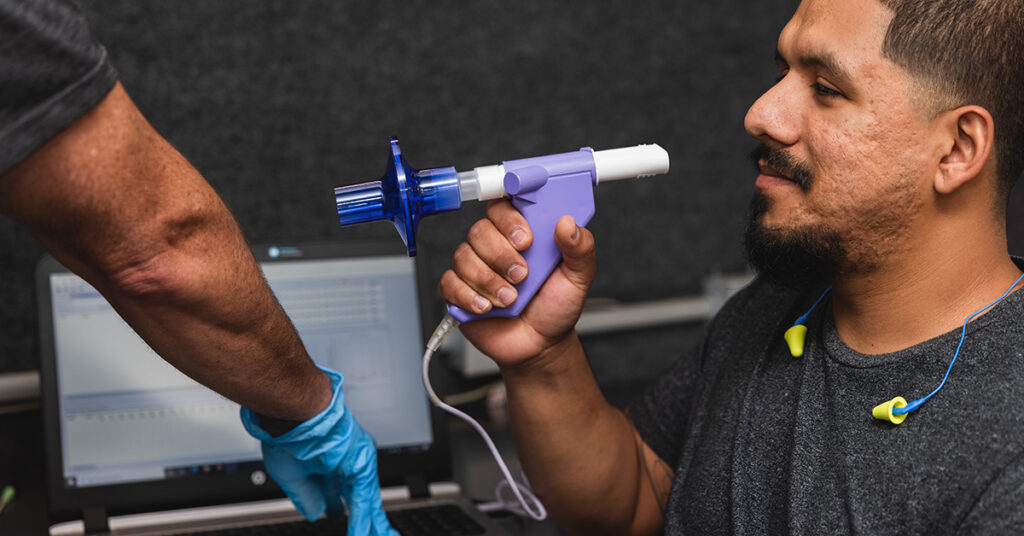For over 40 years, companies have relied on our Industrial Audiologists and Board Certified Occupational Medical Physicians to supervise their audiometric testing programs and review worker hearing threshold shifts to determine work-related OSHA recordability and MSHA reportability.
Work-related hearing loss evaluations are necessary to determine if an event or exposure in the work environment either caused or contributed to worker hearing loss, or significantly aggravated a pre-existing hearing loss.
Eagle Onsite offers a proprietary and comprehensive STS Tracking System™ designed to guide employers step-by-step through the retest, follow-up and work-related hearing loss evaluation process.
Professional Supervisor Services FAQs
OSHA’s Hearing Conservation Amendment 29 CFR 1910.95 states that a technician who performs audiometric tests must be responsible to an audiologist, otolaryngologist, or physician. Furthermore, the audiologist, otolaryngologist or physician shall review problem audiograms and shall determine whether there is a need for further evaluation.
We have experienced Audiologists and Physicians capable of making determinations of work-relatedness for noise induced hearing loss who are also responsible for overseeing our mobile technicians.
Yes. We always maintain at least one Audiologist or Physician who has completed the one-day training program to become a CAOHC Certified Professional Supervisor of the Audiometric Monitoring Program©.
Our STS Tracking System™ is a comprehensive reporting system designed to streamline management of problem audiograms and guide employers through the work-related determination process when necessary. We understand that following up with problem audiograms can be frustrating for employers, especially in a dispersed workforce. Our proprietary STS Tracking System™ helps employers remain in compliance while focusing attention on exactly what is needed in a step-by-step guide from start to finish.
STS is short for Standard Threshold Shift. A Standard Threshold Shift, or STS, is defined in the occupational noise exposure standard at 29 CFR 1910.95(g)(10)(i) as a change in hearing threshold, relative to the baseline audiogram for that employee, of an average of 10 decibels (dB) or more at 2000, 3000, and 4000 hertz (Hz) in one or both ears.
Click here for the recording criteria as outlined in OSHA 29 CFR 1904.10.
If an employee's hearing test (audiogram) reveals that the employee has experienced a work-related Standard Threshold Shift (STS) in hearing in one or both ears, and the employee's total hearing level is 25 decibels (dB) or more above audiometric zero (averaged at 2000, 3000, and 4000 Hz) in the same ear(s) as the STS, you must record the case on the OSHA 300 Log.
Furthermore, a physician or other licensed health care professional must determine if the hearing loss is in fact work-related using rules set forth in section 1904.5. If an event or exposure in the work environment either caused or contributed to the hearing loss, or significantly aggravated a pre-existing hearing loss, you must consider the case to be work related.
According to OSHA, if a physician or other licensed health care professional determines, following the rules set out in section 1904.5, that the hearing loss is not work-related or that occupational noise exposure did not significantly aggravate the hearing loss, you do not have to consider the case work-related or record the case on the OSHA 300 Log.
Click here to review the National Hearing Conservation Association (NHCA) guidance on determining work-relatedness and wording determinations for reports, published in 2011.
We practice ethical, professional objectivity when presenting medical-legal reports. Our Professional Supervisor Services Team understands the “more probable than not” requirement and is experienced in applying informed professional judgment with work-relatedness determinations. Our professionals do not represent the employee, employers, or OSHA.
We are your partner during OSHA audits. One role of our Audiologists and Physicians is to support all parties with explaining outcomes addressing whether a work exposure either caused or contributed to the hearing loss or significantly aggravated a pre-existing hearing loss, or if an exception specifically applies. When we are in the role of Professional Supervisor for a Hearing Conservation Program, our professional consulting services are available throughout the year, on-demand.
According to MSHA, a change in hearing sensitivity for the worse, relative to the miner's baseline audiogram, or the miner's revised baseline audiogram where one has been established in accordance with section 62.170(c)(2), of an average of 25 dB or more at 2000, 3000, and 4000 Hz in either ear.
Click here for the recording criteria as outlined in MSHA 30 CFR Part 62.
Ready to save time and money with onsite services?
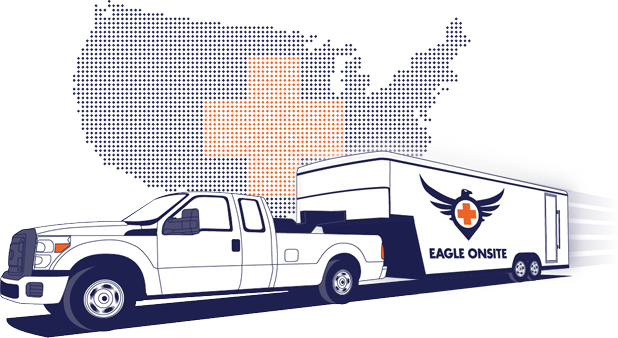
Other Services
Eagle Onsite serves organizations with a full range of onsite occupational medical surveillance services. Click below to learn more about services we offer to help your workforce remain healthy and in compliance.



